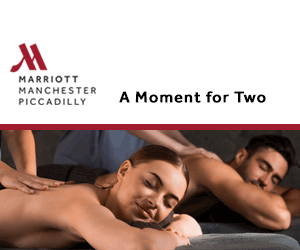We talk to the staff and students working to uncover new evidence in potential cases of wrongful conviction
“It can happen to anyone,” says Claire McGourlay, Professor of Legal Education at the University of Manchester. “There's this misconception that it can't happen to you. That there is no smoke without fire, they must have done something wrong. But truly it can happen to anyone.”
I’m attending the launch event for the Manchester Innocence Project, a student-led, pro-bono organisation that aims at helping the wrongfully convicted.
Any of us could find ourselves in a situation defending ourselves against the institution that was there to protect us
The launch is an insight into the Post Office Horizon IT scandal, one of the most widespread and significant miscarriages of justice in UK legal history. The scandal involved the wrongful prosecution of 732 sub-postmasters, resulting in false confessions, imprisonments, criminal convictions, defamation, loss of livelihood, bankruptcy, divorce and suicide.
While the Manchester Innocence Project did not work on the Post Office Horizon IT scandal, it is an extreme but emblematic instance of a miscarriage of justice case. Journalist Nick Wallis explained to a shocked audience some of the technical and cultural factors involved in how innocent people came to lose their reputations, livelihoods and freedom because of a flawed computer accounting system. Former sub-postmasters, Tom Hedges and Pete Murray, also spoke about their experiences.
The Vice-Chancellor of the University, Lemn Sissay, introduced the event. He later told me: "I spoke about what it feels like when what has happened to you is so out of this world, that you start to lose the ability to articulate your innocence. The law is all about telling stories. It's all about being able to articulate what happened, when it happened, why it happened, and who is responsible. And, you know, it could happen to any of us that we find ourselves in a situation defending ourselves against the institution that was there to protect us."
The stories of the victims of this scandal are an awful illustration of the larger forces that swirl through our lives, most of the time unnoticed until they are very much noticed. Class, race, power and sheer bad luck can all combine to rip a hole in the fabric of our lives at any time.
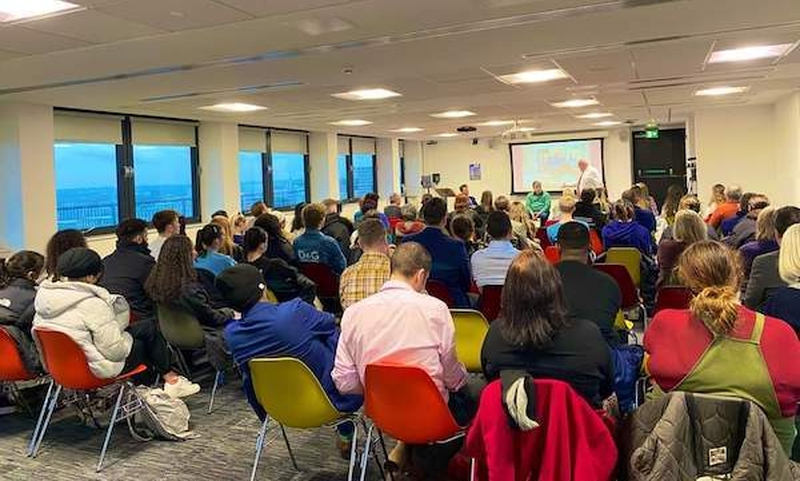
Professor McGourlay has a string of titles and responsibilities at her day job in the School of Social Sciences, but it's her directorship of the Manchester Innocence Project that she is here to talk about.
In fact, if you’ve heard of the term "Innocence Project" before it may well be because of the Netflix series The Innocence Files, which takes the addictiveness of the true-crime genre and turns it on its head – false crime if you like – using individual cases of wrongful conviction in the US to reflect on the woeful state of the justice system. The Innocence Project has also been involved in a number of high-profile cases, which you can scroll through on their website. The tally of years lost is sobering.
According to Claire, the set-up here isn’t quite the same in America – there, innocence projects can fundraise to the tune of millions of pounds through their higher profile and celebrity endorsements, while in the UK, most of the support comes from the social responsibility spending of universities or pro-bono work by solicitors.
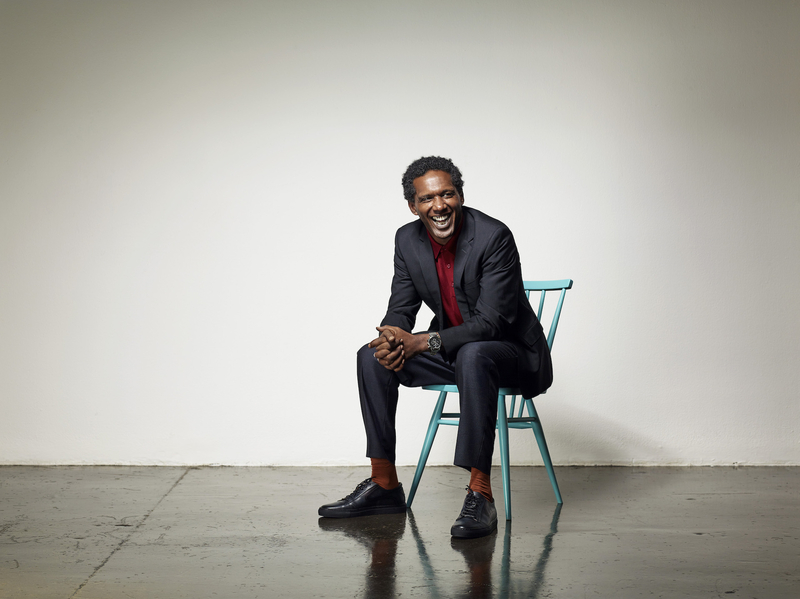
The Innocence Network
Claire initially set up the project as the Miscarriage of Justice Review Centre, and then went through the rigorous process of becoming part of the Innocence Network, which is an American-founded organisation of legal support groups that aim to support those wrongfully convicted. She works alongside practising criminal defence solicitor Fintan Walker (who also lectures at Manchester) and PhD student Suzanne Gower (also a solicitor), organising the work of a further 50 undergraduate students.
While the model is slightly different to account for differing academic and justice structures in the UK, the overall organisation of academics, students and legal professionals working together has achieved a huge amount globally. Worldwide, 678 exonerations have been recorded, while the contribution to legal policy and education of students is immense, as well as the unquantifiable act of giving hope to people who have been wrongfully convicted.
“I came to Manchester five years ago and I set up the Miscarriage of Justice Review Centre. Last year we applied to become part of the global Innocence Project network and we were accepted. There are only 13 projects outside of the US that were part of the Innocence Project. We now work on policy and wrongful convictions globally as well as our local cases," says Claire.
“We took on a few cases and recruited students, and I have two criminal solicitors working with me as well. So now there's now three of us, and we have administrative support as well.
“We reinvestigate the cases to see if there is new evidence, fresh evidence that we can use to send an application to the Criminal Cases Review Commission (CCRC), an independent body which investigates suspected miscarriages of justice, with the aim of getting that back to the court of appeal.”
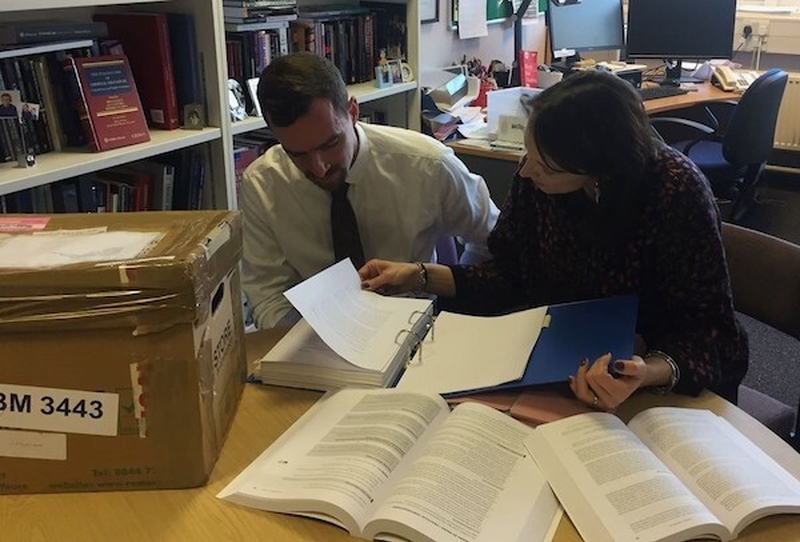
Fresh evidence
While in the popular imagination it might be a newly discovered piece of DNA evidence that saves the day, in reality, the work is much more exacting and more likely to be located in a filing cabinet than in a spot of blood.
“The students get boxes and boxes of evidence, and they wade through those boxes and they scan in all the information. They're looking for the needle in a haystack. They're looking for fresh evidence. They're looking for experts to come forward and say, that is wrong. So they have to rethink everything – turn everything on its head and look for the bit of information that is something completely new. That’s the standard for the CCRC."
Casework is confidential unless and until cases are referred on by the CCRC, so Claire can't tell me about any ongoing cases, though she does describe the sort of detail which the students are on the hunt for - the tiny mistake that can be missed in the first instance.
“One example was a form that had been filled in incorrectly in terms of the time when an alternative suspect was picked up in that area. It was actually on the day the crime was committed but the date was wrong on the form. So our students found that in the information, and we went to the CCRC to say, look, this alternative suspect wasn't investigated properly."
So can we expect Manchester’s equivalent to Serial? Actually, we can. Claire is launching a podcast based on her work with ITV journalist Kylie Pentalow. Claire met Kylie “on University Challenge would you believe?” While the Manchester Innocence Project doesn’t have any exonerations to its name yet, it works as part of the larger Justice Hub which has been offering free legal advice to those in need for several years, and Claire plans to draw on this background as well as her own work in wrongful conviction.
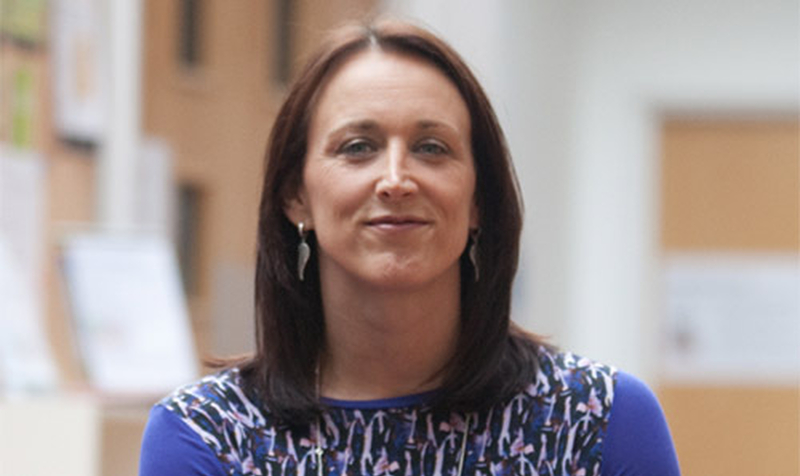
Adam, an undergraduate student working on the Innocence Project, echoes Claire’s description of the sheer volume of work involved in taking on these cases: “We are going through files but it's also writing to the Justice Department, the prison service and to other kinds of organisations and trying to get help from forensic experts. But predominantly, we're kind of sifting through research. So for example, if you spot something on your case, that wasn't necessarily argued right in court or wasn't even picked up on because what you'll find is a lot of cases, you have the main evidence that's used in trial, and then you've got unused evidence as well. There's thousands and thousands of pages of documents.”
Despite the work, many more students apply to the project than are taken on: “It's just that sense of satisfaction that you're actually helping someone. I mean, you go through some really serious hurdles. You are given a lot of autonomy and responsibility and you're able to carry out these tasks with carte blanche. We are treated like we are legal professionals. I think that's such a boost," says Adam.
Still, it's difficult work with only a small hope of success. The CCRC usually receives around 1,400 applications for reviews (convictions and/or sentences) each year, and of those refers around 3% to the appeal courts. It is then for the appeal court to decide whether the conviction is unsafe or the sentence unfair.
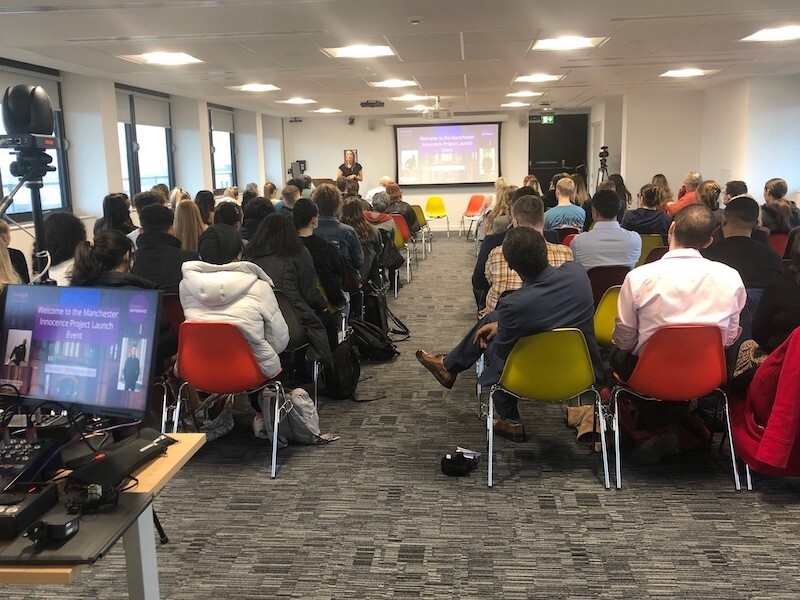
I ask Claire what she thinks the most common misapprehension most people have about the legal system is. She says it's that anyone can get legal aid. In fact, when a person convicted of a serious crime has exhausted the normal appeals process, there is almost no legal aid available to fund an investigation into possible sources of fresh evidence that could support her or his claim of innocence.
Funding in all areas is sparse: "The criminal justice system has so much of a backlog and is so underfunded. They're not paying the lawyers enough. Believe it or not, there are very few fat-cat criminal lawyers. Most of them are literally earning below minimum wage. So what my fear is, is that in five years' time you're going to see so many people who will be saying 'I was wrongly convicted', because they're not getting the representation. We'll see more and more people being wrongly convicted, and less and less money.
"Unlike education or health, the criminal justice system doesn't really get much attention until it happens to you. And then you think, well, it's so underfunded. It doesn't work. Why can't we get help? If you're wrongfully convicted, it can take decades to uncover the truth."
Find out more at Manchester Innocence Project website of follow on Twitter @InnocenceMCR
Read now: The North's biggest uni building houses a 'lightning machine'
Read again: Northern leaders urge government to reconsider HS2 plans in Manchester
Get the latest news to your inbox
Get the latest food & drink news and exclusive offers by email by signing up to our mailing list. This is one of the ways that Confidentials remains free to our readers and by signing up you help support our high quality, impartial and knowledgable writers. Thank you!







